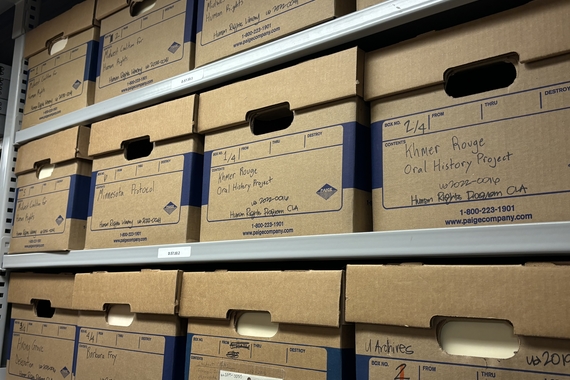Local Community Activists Await UN Body on Law Enforcement and Racism’s Findings to be Released this Fall
The UN Body on Law Enforcement and Racism completed their visit to the U.S. in the beginning of May. They have since been preparing a report of their findings which will be published in September, and presented at the Human Rights Council’s 54th session.
The United Nations International Independent Expert Mechanism to Advance Racial Justice and Equality in the context of Law Enforcement (EMLER), colloquially known as the UN’s George Floyd mechanism, completed a site visit to Minneapolis on May 2, 2023 following pressure from student researchers at the University of Minnesota and activists in the surrounding community. This event was part of EMLER’s larger country visit to the United States to examine laws and practices related to the use of force by law enforcement officials, speak with stakeholders about their lived experiences with police brutality, and make recommendations to help ensure access to justice for citizens and accountability.
In May 2022, students from the MHR program drafted a report to the OHCHR detailing their findings regarding activist surveillance in non-protest settings. Early this year, with the help of University students, faculty, and various departments, community members drafted and circulated a letter calling on EMLER to make a stop in Minneapolis during their visit to the United States this past spring. With thousands of signatures and a sense of urgency following numerous instances of police violence in the area, EMLER agreed to sit down with stakeholders to discuss this growing issue. The event also included testimonies from survivors and families of victims of police violence. Furthermore, people spoke about their experiences as juveniles in solitary confinement and the long-term effects that often result.
Following the visit, Minnesota Congresswoman Ilhan Omar introduced a House resolution to condemn police brutality worldwide and call on the Biden administration to take steps to end police brutality in the United States and abroad.
EMLER experts also held a press conference following the country visit to summarize their findings and recommendations for U.S. authorities. Juan Méndez, one of the experts for EMLER, stated that “Existing local and national standards on the use of force by law enforcement officials do not meet international standards.” More specifically, the Experts recommended that the United States pass the George Floyd Justice in Policing Act. One of the mandate’s recommendations on a more proactive DOJ regarding police brutality was recently realized after the DOJ presented its findings after a two-year long investigation of the Minneapolis Police Department.
This visit to Minneapolis, MN is crucial due to the nature of the mechanism and the state’s history with police violence. EMLER was created in response to the murder of George Floyd and the protests that occurred afterwards, as well as years of local efforts to address the systemic violence rooted in law enforcement. Minneapolis wasn’t originally included on the schedule for EMLER’s visit, but the letter drafted by community members demonstrated the power of local organizing. The U.S. is facing immense pressure from the UN to hold police accountable for extrajudicial killings, as this mechanism directly addresses human rights violations in the country
The Biden Administration’s willingness to grant permission to EMLER to carry out their investigation allowed people who have suffered from police brutality to testify not just in front of a local audience, but be heard by an international body. Courtney Ross, fiance of George Floyd described how the panel “extended the time, and they extended the time. It was so powerful that they were not going to leave us, they were going to hear our stories and that was particularly significant to the families I came with.” After the visit, EMLER expert Juan Méndez stated, “We got the sense we were only listening to the tip of the iceberg.”
EMLER plans to release a report with their findings in September. These findings will be presented in October during the 54th session of the Human Rights Council.


